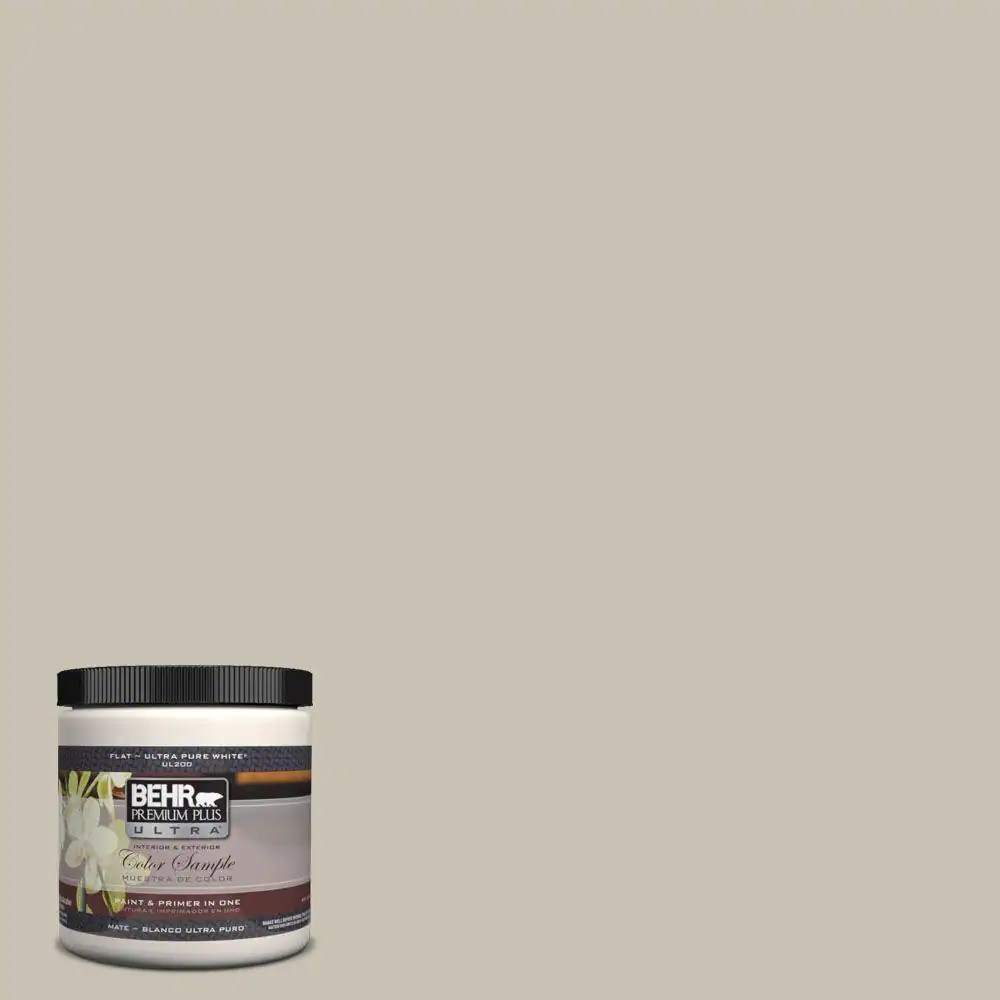Unlocking the Secrets of Behr Sculptor Clay: The Ultimate Guide
So, you’re staring at a wall. A blank, boring, beige-ish wall. It’s whispering for a makeover, begging for a splash of personality. You’ve heard whispers of a color, a shade that promises to transform your space from drab to fab: Behr Sculptor Clay. But what *is* this mystical hue, and how can you harness its power?
Behr Sculptor Clay isn't just another beige. It's a complex character, a chameleon in the world of neutrals. It’s a warm, inviting shade that can shift and change depending on the lighting, surrounding colors, and even your mood (okay, maybe not your mood, but it *feels* that way). Understanding its nuances is key to unlocking its full potential.
Let’s embark on a journey to decode the enigma of Behr Sculptor Clay. We’ll delve into its undertones, explore its complementary colors, and uncover the secrets to using it effectively in your home. Think of this as your comprehensive guide, your Sculptor Clay bible, your passport to a world of beautifully painted walls.
Imagine this: you walk into a room bathed in the soft, earthy glow of Sculptor Clay. It’s not screaming for attention, but it’s subtly elegant, quietly sophisticated. It’s the perfect backdrop for your vibrant artwork, your cozy furniture, your life, basically. This is the magic of Sculptor Clay.
But before we get ahead of ourselves, let's take a step back and understand what makes this color so special. The key lies in its undertones. Unlike a simple beige, Sculptor Clay has a complex mix of gray and green undertones, giving it a depth and richness that sets it apart. This subtle complexity is what allows it to work so well in a variety of settings, from modern minimalist to rustic farmhouse.
While a specific origin story for the color's name remains elusive, its popularity stems from its versatility. The subtle grey and green hues allow it to transition between cool and warm tones depending on the lighting. This allows it to be incorporated in a wide array of design styles.
One of the main issues encountered with using a color like Sculptor Clay, lies in its sensitivity to surrounding lighting. In rooms with limited natural light, it can appear more gray, while in brightly lit spaces, the green undertones may become more prominent. Understanding this interplay is crucial for achieving the desired effect.
Think of choosing a paint color like choosing a friend. You want someone who complements you, who brings out your best qualities. The same goes for wall colors and their relationship with your furniture and décor. Sculptor Clay’s warm, earthy tones pair beautifully with natural materials like wood and stone. It also plays well with a range of accent colors, from deep blues and greens to vibrant yellows and oranges.
Benefits of Behr Sculptor Clay:
1. Versatility: Sculptor Clay works well with various design styles, from modern to traditional, offering flexibility in decorating.
2. Warmth and Depth: Its unique blend of gray and green undertones creates a warm, inviting atmosphere, adding depth and character to a space. For example, in a living room with lots of natural light, the green undertones might create a lively and refreshing feel.
3. Neutral Backdrop: It acts as a perfect neutral backdrop, allowing furniture and artwork to take center stage while still providing a sense of cohesiveness.
Tips for Using Behr Sculptor Clay:
1. Test in Your Space: Paint a large swatch on your wall and observe it in different lighting conditions throughout the day.
2. Consider Your Existing Décor: Ensure Sculptor Clay complements your furniture, flooring, and other design elements.
3. Play with Accent Colors: Experiment with different accent colors to see how they interact with Sculptor Clay.
Advantages and Disadvantages of Behr Sculptor Clay
| Advantages | Disadvantages |
|---|---|
| Versatile and adaptable to various design styles | Can appear differently under various lighting conditions |
| Creates a warm and inviting atmosphere | May require careful coordination with existing décor elements |
| Serves as a neutral backdrop for furniture and artwork | Might not be suitable for rooms requiring a purely cool or warm tone |
Frequently Asked Questions:
1. What are the undertones of Behr Sculptor Clay? It has gray and green undertones.
2. What colors go well with Behr Sculptor Clay? Blues, greens, yellows, and oranges complement it well.
3. Is Behr Sculptor Clay a warm or cool color? It is generally considered a warm neutral.
4. Can I use Behr Sculptor Clay in a small room? Yes, but test it with your lighting first.
5. What sheen should I use for Behr Sculptor Clay? This depends on the room and your preference; eggshell or satin are common choices.
6. Does Behr Sculptor Clay look like greige? It has similarities to greige, but the green undertone makes it distinct.
7. Where can I buy Behr Sculptor Clay? At Home Depot stores and online.
8. What is a good trim color for Behr Sculptor Clay? Bright white or off-white trims often work well.
In conclusion, Behr Sculptor Clay is more than just a paint color; it's a design element that can transform your home. Its warm, earthy tones, subtle gray and green undertones, and remarkable versatility make it a top choice for those seeking a sophisticated and inviting atmosphere. By understanding its nuances and following the tips and tricks outlined here, you can unlock the full potential of this remarkable hue and create a space that truly reflects your style and personality. Embracing the subtle complexities of Behr Sculptor Clay allows you to craft a space that is both timeless and on-trend. So, go ahead, grab a paintbrush, and let Sculptor Clay work its magic on your walls. You won't regret it.
The luminous allure of pearl spray paint
Unpacking the thrills in raising villains chapter 56
Skip game mania youngstowns hidden treasures














